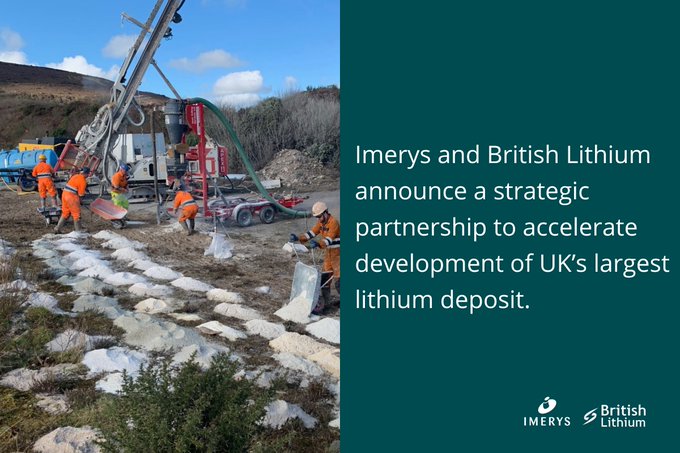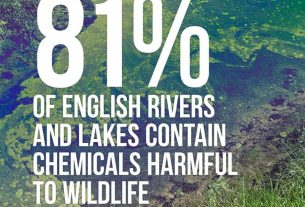The demand for the world’s lightest metal for the manufacture of electric goods such as mobile phones and electric cars has never been more pressing. The government has announced that it will help fund a joint venture between French mining company Imerys and British Lithium. The collaboration will see mining commence in 2028 and is expected to meet two-thirds of Great Britain’s demand by the end of the decade. Representatives from the two companies said that the Cornwall lithium mining venture would “reduce the UK’s and Europe’s dependence on critical raw materials imports, thus contributing to the achievement of the European and British climate change targets and the creation of the first fully integrated regional electrical vehicle value chain”.
But environmental concerns have arisen too, with organisations like Friends of the Earth highlighting that “green mining is a myth”.
British Lithium has partnered with mining company Imerys to form a joint venture to become the UK’s “leading lithium hub” within five years. Mining of battery-grade lithium carbonate at St Austell in Cornwall is set to begin in 2028. The target is to deliver sufficient lithium for half a million electric cars annually. Estimates indicated that the mine has the lithium resources to supply more than 20,000 tonnes of lithium carbonate for an excess of 30 years.
In a statement, the companies said that the joint venture would create more than 300 jobs for the local community. Both the Automotive Transformation Fund and Innovate UK are providing financial support.
Imerys will furnish infrastructure, land, and mineral resources for an 80%-company stake, with British Lithium contributing its technical team, lithium pilot plant, and lithium processing technology for the 20%-remainder.
The Cornwall high-purity lithium production plant consists of a beneficiation plant, a conversion unit, and a quarry on the Imerys brownfield site.
The project follows on from the British Lithium pilot project, whereby the company developed a sophisticated battery-grade lithium production process. In line with the National Security Investment Act protocol, the UK Government has rubber-stamped the British-French joint venture.
Speaking to reporters on the announcement of the joint venture, UK Business and Trade Secretary Kemi Badenoch said:
“This joint venture between Imerys and British Lithium will strengthen our domestic supply of critical minerals, which is vitally important as we seek to grow the UK’s advanced manufacturing industry and help create the jobs of the future. This partnership shows again that the UK remains an attractive destination for international investment and will boost economic prosperity, support green industries, and bolster our energy security – not only in Cornwall, but right across the UK.”
Lithium mining in Cornwall to adhere to the highest environmental standards
An Imerys spokesperson has assured that the joint British Lithium and Imerys venture will comply with the most exceeding social and environmental standards set out by the Initiative for Responsible Mining Assurance (IMRA).
The IRMA standard outlines best practices for industrial-scale mining, which independent auditors use to assess whether a company is mining responsibly. The IRMA system provides the resources and procedures for mining firms and auditors, setting out clear guidelines and best practices. It also delivers information to communities impacted by mining activity.
Dangers of lithium mining highlighted by Friends of the Earth
Earlier this month, Friends of the Earth Scotland published a report into the environmental impact of mining for ‘transition minerals’, chiefly lithium. The organisation raises concerns regarding the impact on the local community, the exploitation of natural resources, excess energy consumption during the mining process, and the production of huge amounts of toxic waste.
Across the globe, the negative impact of mining has left regions and communities depleted, so may say, beyond repair.
Friends of the Earth Europe have accused governments and industry stakeholders of “greenwashing mining” by highlighting that the end produce is destined for green technology and a reduction of overall emissions. In its report, the organisation says:
“Mining for lithium, cobalt, manganese, platinum, aluminium and copper have been associated with high or very high environmental and social risks. Globally this includes 167 human rights abuse allegations, tied to 86 different mining operations, 35% of which are headquartered in Europe. ”
Regarding the environmental downsides, Friends of the Earth Europe lists the following:
- Natural habitat destruction and biodiversity loss
- Soil erosion and contamination
- Toxic waste harmful to animals and plants
- Contamination of coral reefs, wetlands, and groundwater systems
- Potential land collapse and parasite infestations
German photographer Tom Hegen has dedicated much of his time in recent years to photographing lithium mines to highlight its impact. Each electric car requires 20 to 30 kg of lithium, meaning we are on course to creating a lithium crisis with significant environmental and social damage in its wake.

On his website, Hegen writes:
“It is paradoxical with lithium and other resources: Industrial countries in Europe, China, and North America advertise electric mobility as a green solution. On the other side, we exploit countries on the other end of the world for resources and transport them around the globe.”
While the greater Cornwall community appears keen on reviving its profitable mining history, some locals are concerned. Speaking to the BBC, the director of the Cornwall Climate Action Network, Holly Whitelaw, said:
“It’s got to be done as cleanly as possible.
“Some lithium mining abroad is horrific”, adding that UK companies must help to create better standards globally.




